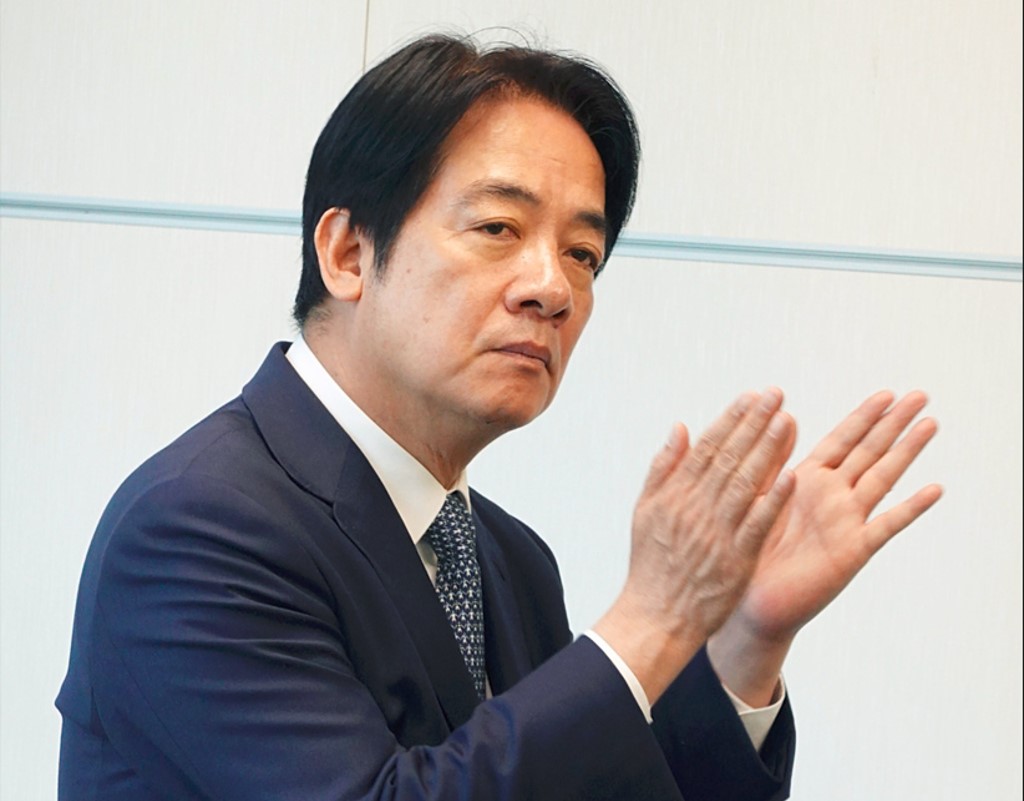The world’s so-called “super election year”, in which over 50 countries are scheduled to go to the polls, has been inaugurated in Taiwan with a consequential presidential and legislative election. The ruling Democratic Progressive Party’s (DPP) candidate William Lai Ching-te prevailed, but the party lost its legislative majority and a significant amount of support. Against this backdrop, a new era of instability lies ahead for Taiwan and the security situation around East Asia.
William Lai Ching-te, a longtime member of the DPP with a long career as a bourgeois politician in Taiwan, was the unopposed nominee of the DPP to succeed incumbent President Tsai Ing-wen. Lai is the undisputed leader of the DPP’s dominant ‘New Tide’ faction, with deep ties to the main conservative capitalist class of Taiwan. He had previously come into conflict with the liberal-leaning President Tsai, but the latter was forced to concede to Lai becoming her vice president in the 2020 election.
In this year’s campaign, Lai promised to be the continuity candidate for the Tsai government, which had leaned sharply towards US imperialism against Chinese ambitions to annex Taiwan. This is the primary difference between the DPP and the other major party of Taiwan, the KMT. Other than this, the two parties hold identical pro-capitalist policies at a time when Taiwan becomes ever more enmeshed in the worldwide capitalist crisis.
Whilst Lai took a comfortable lead over his main competitor, the KMT’s nominee Hou You-yi, the result shows a slump in support for the DPP as a whole. Compared to his predecessor Tsai, who won by 8.1 million votes in 2020, the biggest vote win since Taiwan became a bourgeois democracy, Lai won by 5.5 million, a slump of 2.6 million votes.
In fact, the combined vote of both of the party’s major competitors – the KMT’s Hou and the insurgent populist Ko Wen-je – added up to around 8.2 million votes. A month ahead of the election, Hou and Ko were in negotiations for an electoral alliance that ended in an acrimonious public breakdown. Had it materialised, however, Lai would have lost the election by a landslide.
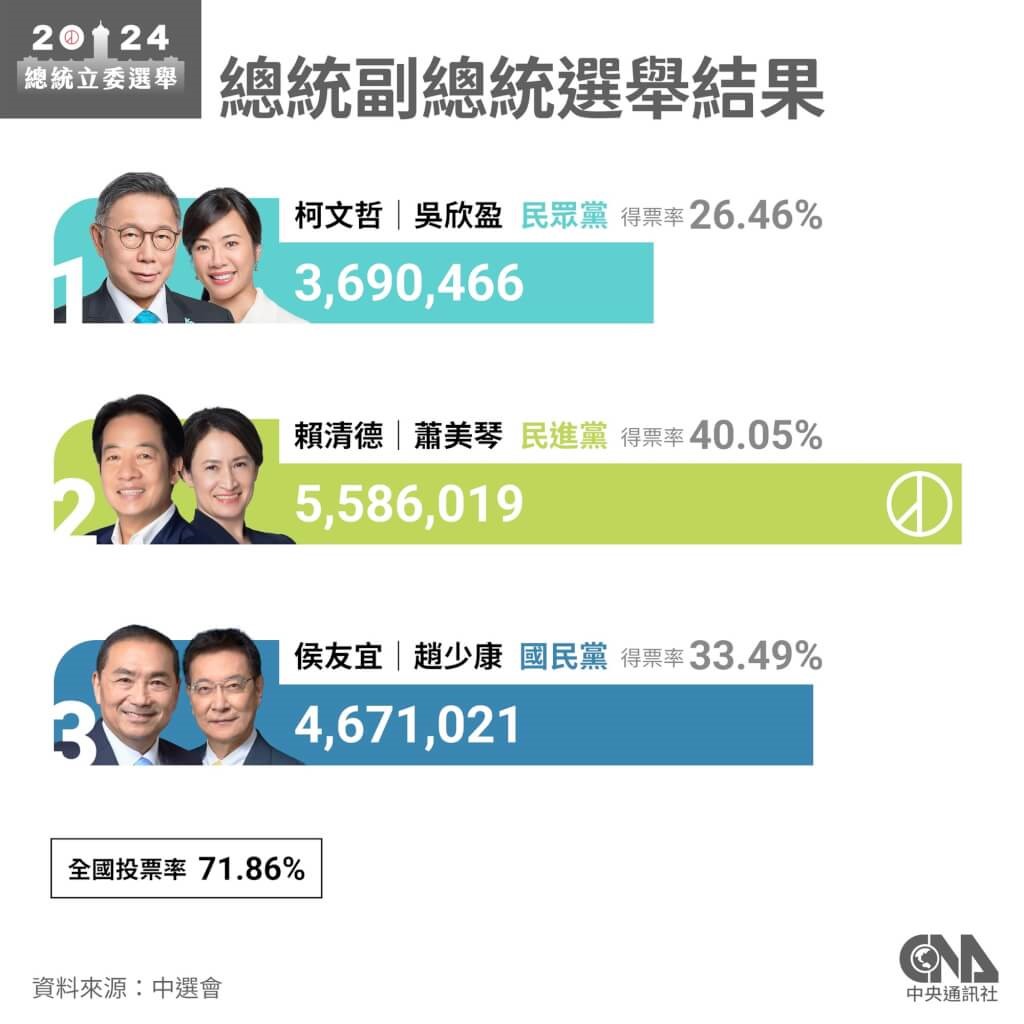 Had an electoral alliance materialised, Lai would have lost the election by a landslide / Image: Central News Agency
Had an electoral alliance materialised, Lai would have lost the election by a landslide / Image: Central News Agency
The DPP, after two terms of government with a majority in the Legislative Yuan (Taiwan’s parliament), is entering a third term without a majority. Now they have to face a legislature that contains opposition parties KMT and Ko Wen-je’s Taiwan People’s Party (TPP), both of which gained seats and who hold a combined majority, should they choose to cooperate. The Lai government will be a minority government facing a combative legislative branch.
The DPP’s defeat in the legislature is justly deserved. After eight years of majority, they have delivered none of the progressive reforms they promised, and instead faithfully carried through many of the previous KMT government’s plans for counter-reform on wages, working hours, welfare, etc. – that is, attacking the interests of the working class.
In the past, the DPP wooed the support of the workers as the “progressive, pro-Taiwan” alternative to the capitalist, establishment, China-aligned KMT. They proceeded to expose their bourgeois character by doing more of the same, opening the eyes of many workers and youths in Taiwan in the process.
In these conditions, the William Lai government holds none of the shine of Tsai Ing-wen’s ‘progressive’ image, and has lost control of the Legislative Yuan. With only the executive branch under his control, Lai cannot rule as the DPP has in the past. Whether on foreign policy or domestic, wherever he is at odds with the opposition, deadlock will ensue.
William Lai himself is far from a beloved figure among the workers and youth. As both the mayor of Tainan and then the Premier under Tsai Ing-wen, he was reviled for his arrogant and brutal posture in carrying out the will of the ruling class. With low wages having long plagued Taiwanese workers, Lai once advised underpaid care workers to treat their gruelling conditions as “earning good karma.”
As this brutal executive of the capitalist class steps forward to take reins of the state against the backdrop of worsening social crises, Lai will attract fiery anger from the masses who have few illusions in him. This is the perspective that revolutionary communists in Taiwan should prepare for.
The meaning of Ko Wen-je
Lai hardly has cause for celebration. But does this mean that the KMT has gained a new lease of life?
The answer is no. In fact, Hou You-yi’s vote of 4.6 million is even less than the 5.5 million votes the KMT candidate Daniel Han Kuo-yu scraped in the last election. Han himself was a surprise rising star within the KMT, modelled on the style of Donald Trump, who at one point appeared to be able to defeat Tsai. That was before the 2019 Hong Kong mass movement against the CCP cut across his rise, reminding the Taiwanese electorate of the threat of Chinese imperialism.
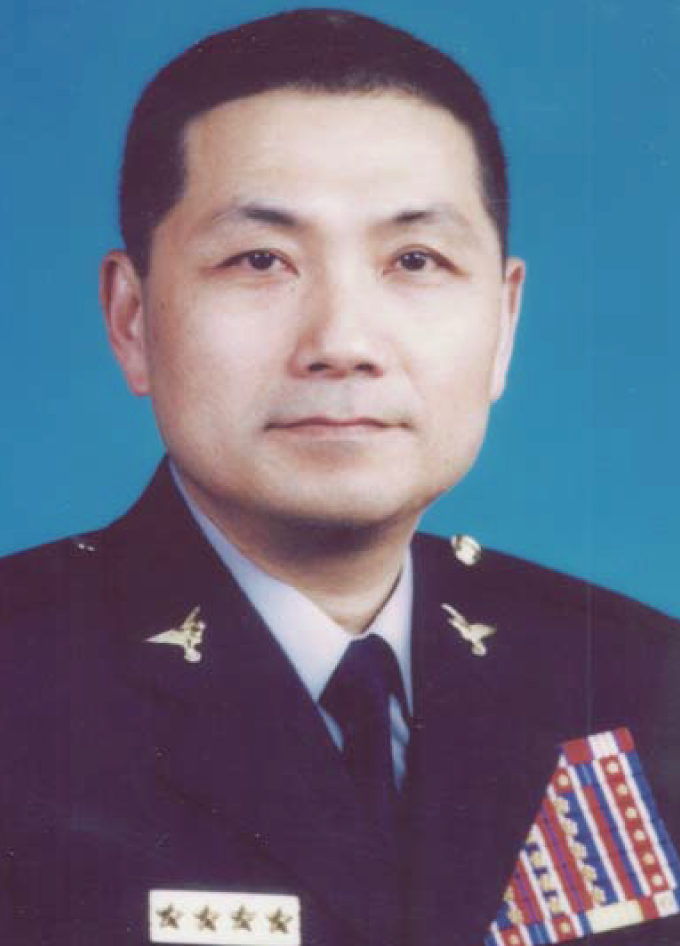 Hou is a mealy-mouthed former police chief with a past of persecuting democratic activists against the old KMT dictatorship / Image: 內政部警政署
Hou is a mealy-mouthed former police chief with a past of persecuting democratic activists against the old KMT dictatorship / Image: 內政部警政署
This time around, Hou, a consensus candidate, is a mealy-mouthed former police chief with a past of persecuting democratic activists against the old KMT dictatorship. Although Hou attempted to temper the KMT’s image as the ‘pro-China party’, he failed to fool the absolute majority of Taiwanese society, which firmly refuses to unify with China on the present capitalist basis. After all, the official name of the KMT remains the Chinese Nationalist Party.
In the Legislative Yuan, the KMT certainly gained more seats at the expense of the DPP, but they still have not gained a majority in Taiwan’s 113 seat legislature, holding only 52 seats.
Nothing is surprising here. The KMT is continuing its decline as a major force in Taiwan’s bourgeois politics, its support having been gutted and having never recovered since the mass Sunflower movement of 2014 against the previous Ma Ying-jeou government.
As the crisis of world capitalism has sharpened the conflict between US and Chinese imperialism, and Taiwan rapidly became a potential flashpoint between the two, the KMT’s pro-China position became untenable among a population that is sharply against the CCP regime in China. For years, the KMT descended into an internal crisis, producing no few bizarre characters that were roundly rejected by the Taiwanese masses. This can only continue.
The chief difference in this election lies in the performance of Ko Wen-je’s Taiwan People’s Party. Though in the presidential election Ko himself came a distant third place (still gaining 3.7 million votes), his party doubled its vote share (to 22 percent) in the at-large legislative election, securing his party’s 8 seats in the Legislative Yuan. As neither the DPP nor the KMT gained a majority, the TPP is now ‘kingmaker’ in the legislature.
Ko Wen-je is a relative newcomer to bourgeois politics. Before standing for the capital Taipei’s mayoral election in 2014, he was a widely renowned surgeon, specialising in organ transplantation. When he emerged on the political arena, he characterised himself as “deep green” (i.e. extremely pro-Taiwanese independence), and more liberal and progressive, standing as an Independent, although allied to the DPP.
As he took reins of the capital, he soon revealed himself to be a right-wing, petty-bourgeois reactionary, only interested in personal power. He tossed out his Taiwanese Independence stances in favour of the slogan, “One Family Across the Strait”. Meanwhile, he enforced the same pro-capitalist policies that both the KMT and DPP city governments had previously carried out against the working class. The hitherto “reliable, clear-minded doctor” showed himself to be like the rest of the politicians, with frequent misogynistic, homophobic and other reactionary gaffs.
In 2019, Ko founded the Taiwan People’s Party as the vehicle for his future presidential ambitions. Other than wielding the slogan “reject Blue (KMT) and Green (DPP)”, the founding principles of the TPP were a laundry list of amorphous platitudes about being as “people-centred”, “professional”, and “value-driven”.
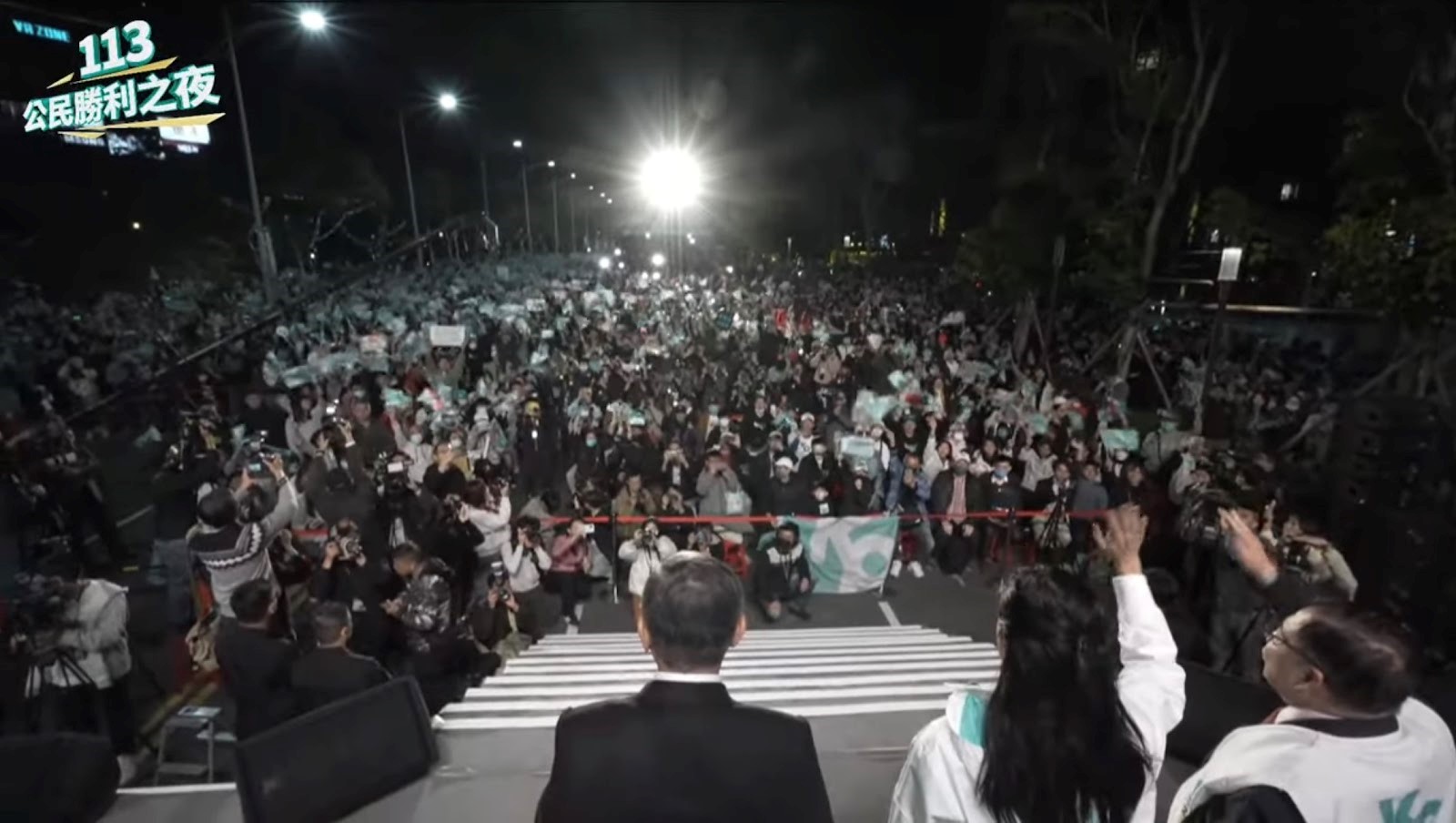 Ko became an unfortunate conduit for the desire for an alternative / Image: Ko Wen-je Youtube
Ko became an unfortunate conduit for the desire for an alternative / Image: Ko Wen-je Youtube
Unlike the historic Taiwan People’s Party, which was a mass workers’-farmers party that struggled against Japanese colonial rule in the 1920s, the TPP of Ko is a band of disaffected third-tier former DPP and KMT politicians, who found a new home in the party. Its bourgeois character was shown in its early ties with Taiwan’s richest man and Foxconn’s infamous CEO Terry Kuo. This time Ko’s running mate is Cynthia Wu Hsing-ying, heiress of Taiwan’s Shin Kong Conglomerate and former aide to the UK’s Tory MP Peter Lilley. She is regularly the subject of ridicule for speaking Mandarin Chinese with a heavy American accent, having been born and raised in the USA.
Still, given that the Taiwanese masses are growing tired of the capitalist two-party system that has done nothing for them, Ko became an unfortunate conduit for the desire for an alternative.
In the run-up to the election, Ko galvanised significant support from the youth, to the point that both the DPP and KMT campaigns largely conceded the youth vote to Ko. His campaign rallies had an almost messianic atmosphere, with large contingents of adoring supporters. Unlike the KMT and DPP crowds, they were not there in exchange for free bento boxes. This was something different.
Although Ko appears to command the attention of large layers of youths, the revolutionary communists of Taiwan organised as The Spark have steadfastly warned against any illusion in him and his party. Many advanced youths and workers also see through him. The most militant trade unions in Taiwan have also declared their opposition to the demagogic Ko Wen-je on account of his terrible track record of anti-working class policies.
But now, despite failing to win, Ko’s party is now the kingmaker. As a totally unprincipled careerist, he keeps a close eye on the mood in society and will say almost anything to climb the ladder.
In relation to China, although he largely appears to be conciliatory and willing to distance Taiwan from the US, he has also called for an “A4 Movement”, named after the mass struggle in China that forced the CCP to end their draconian lockdowns in 2022. This kind of language is unacceptable to the CCP, and the latter does not control Ko the way they do the KMT. This leaves more room for illusions in Ko to persist in the coming period, until he finally ends up in a position that exposes him like the KMT and DPP before him.
Internationally speaking, Ko and the TPP are nothing new. They are but the Taiwanese iteration of mass disaffection against the capitalist establishment, expressed in the absence of a socialist alternative. In many ways, the TPP is like Italy’s Five Star Movement, which channelled the Italian masses’ anger against the deteriorating capitalist system in that country. Like the Five Star, the TPP will not succeed in becoming a stable fixture of Taiwan’s bourgeois democracy, and will dissipate as quickly as it came when the masses step up to confront the system themselves in the next period of turmoil in Taiwan and the world.
The first shot in a world on the edge
After having been largely ignored by the world’s bourgeois media, this year’s presidential election in Taiwan has gathered significant attention from the international ruling class on all sides. They are chiefly interested in how the election will impact perspectives for future conflict between the US and China, especially since the outbreak of the war in Ukraine.
US imperialism breathed a sigh of relief as Taiwan remains under the control of pro-US forces that will not step out of the bounds of their wishes. Although William Lai long ago was a fervent champion of Taiwan’s de jure independence, his time as a bourgeois politician has led him to significantly temper his stance, to the point that he once raised the slogan “closer to China, love Taiwan” as Tainan’s mayor to halt conflicts with China. In his victory speech as president-elect, he promised to maintain the status quo.
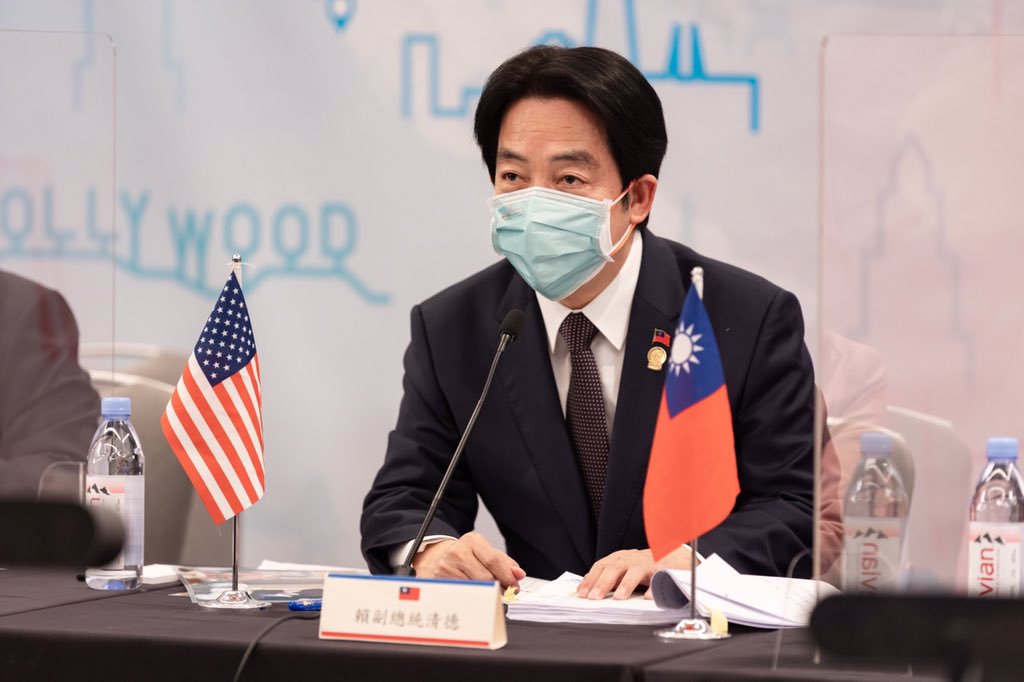 When Washington asks Lai to jump, he will ask, “how high?” / Image: 賴清德Lai Ching te, Twitter
When Washington asks Lai to jump, he will ask, “how high?” / Image: 賴清德Lai Ching te, Twitter
Lai’s moderation closely follows the position of US imperialism. Lai’s long time at the top of state and the DPP establishment also forged a strong and direct line to the US. Thus, when Washington asks Lai to jump, he will ask, “how high?” The US will have a reliable hand in Taiwan’s government as it continues to pressure China short of igniting a war.
The real question is how stable the US itself will be in the coming period, with a senile, barely coherent president Biden who, by all accounts, has a real chance of losing his own upcoming election to Donald Trump in November. Alongside this, we have the rising class struggle, with significant interest in Marxist ideas developing among the youth.
For ‘Communist’ China, on the surface this election would appear to be a humiliating rebuke. Yet the CCP has surely anticipated this result, with the polls having long shown that the DPP could win by some margin. They have prepared for this in official propaganda, with the usual belligerent rants about “unifying the fatherland”.
Further affronts against Taiwan and the US, such as sending fighter jets to intrude on Taiwan’s airspace, will surely continue. Since Lai’s term cannot be inaugurated until May, we can expect China to display more shows of force, especially in the next few months. However, at the present moment, China chiefly aims in doing so to distract its own masses from their own social crises through nationalist posturing. It is not prepared to go to war over Taiwan just yet.
That said, the impending period will see sharp and sudden changes, especially in this ‘super election year’, in which the fate of many governments hangs in the balance. Nothing rules out surprising developments that may upend all of ruling classes’ calculations.
If, somehow, China is driven to take a step against Taiwan that qualitatively goes beyond those it has taken in the past, then its first targets would be the territories of Kinmen and Matsu, two islands off the coast of China under Taiwan’s control, but with a small population that largely consider themselves Chinese and separate from Taiwan. Taking these islets would be as smooth as Putin’s annexation of Crimea, and if it was done, there would be little that Taiwan or the US could do.
For a revolutionary communist alternative
The Marxists of The Spark and the International Marxist Tendency (IMT) have steadfastly explained that no bourgeois politicians can solve the crisis of capitalism for the working class. Any political change without the actual participation of the workers can only be superficial and fleeting. Over the years, many of our predictions came true, including the emergence of the small liberal, ‘progressive’ ‘Third Force’ parties in 2014, who have been completely wiped out in this election. In the meantime, the ruling class of all shades will maintain the very same oppressive and deteriorating conditions for the workers and youths.
The deep desire for an alternative persists, and it is now being partially taken advantage of by Ko’s TPP. It is clear that the masses are tired of the bourgeois parties who row over cross-strait issues while ignoring their daily concerns. As The Economist observed:
“Nearly half of Taiwan’s voters are concerned about the possibility of a war with China in the next five years, according to a survey by Commonwealth, a Taiwanese business magazine. Yet voters’ biggest priority is economic development, outweighing both national security and cross-strait relations, the same survey found. This prioritising of economic issues is even stronger among voters under 40.”
A real alternative can only be forged on the basis of a mass workers party, which differs from the traditional political parties in Taiwan in that it is not a mere electoral front operated by a band of activists, but a membership party with active participation of rank and file members to control the party’s policies, maintaining a clear class perspective. Only such an organisation could meaningfully inspire the involvement of larger layers of workers and youths in politics, combatting the traditional clientele networks through which the bourgeoisie usually mobilises the votes in the country.
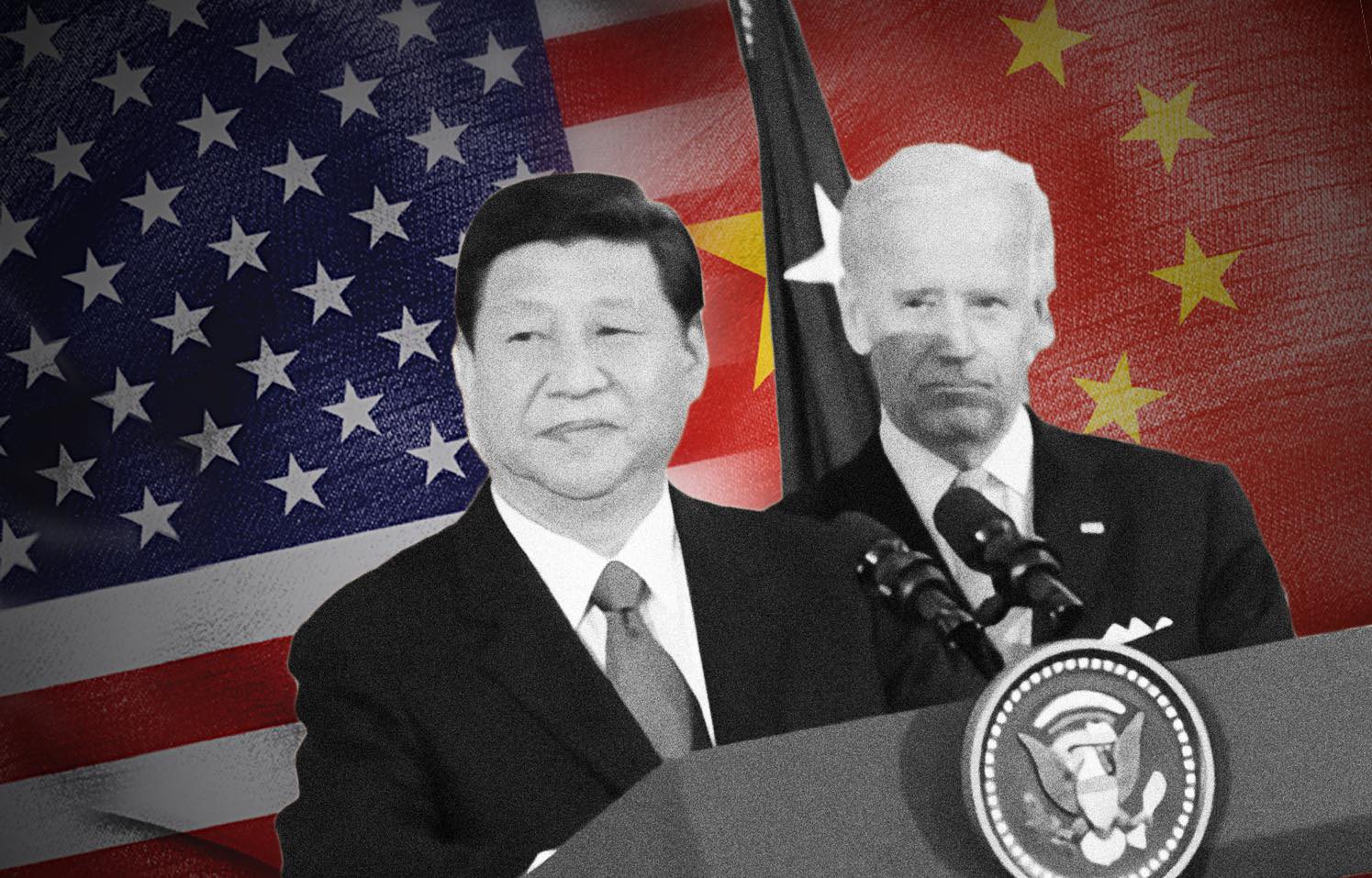 A workers' party requires a programme, which poses the question of workers taking over society, an internationalist solution of uniting with Chinese workers to end the CCP, and kicking out US imperialism / Image: own work
A workers' party requires a programme, which poses the question of workers taking over society, an internationalist solution of uniting with Chinese workers to end the CCP, and kicking out US imperialism / Image: own work
The forging of such a party is the responsibility of Taiwan’s trade union leaders, the most advanced of which are clearly centred in Taoyuan around the Taoyuan Industrial Union. They must send cadres around the country to connect with like-minded elements, to strengthen the labour movement as a whole in preparation for a new age of onslaught presided over by William Lai. The coming period necessarily entails that the workers of Taiwan can no longer afford not to have their own class party.
Unfortunately, while leading members of the militant trade unions have, once in a while, suggested the formation of a mass workers’ party, they are yet to act on their words. They still have illusions in reforming rather than abolishing capitalism, which is why they view the building of a class party as a secondary question. But material conditions are deteriorating far faster than they realise for the general working class of Taiwan, and if the labour movement fails to provide a political alternative, then someone else will, and they are unlikely to provide anything remotely progressive.
The forging of such a party also requires a consistent, clear, revolutionary and communist programme, which poses the question of workers taking over society, and an internationalist solution of uniting with Chinese workers to end the CCP, and kicking out US imperialism. Only such a programme can extract Taiwan from the endless fog of war, and secure the livelihoods of the Taiwanese working masses, making them masters of their own destinies. This is the only programme that can inspire and attract larger layers of people who are looking for a workable alternative to the status quo.
The revolutionary communists of The Spark, supporters of the IMT in Taiwan, are working to build our forces based upon such a view and strategy. We invite every worker and young person who wants to win a real future for themselves to join us in building our forces and in building a revolutionary communist voice within the Taiwanese labour movement.

